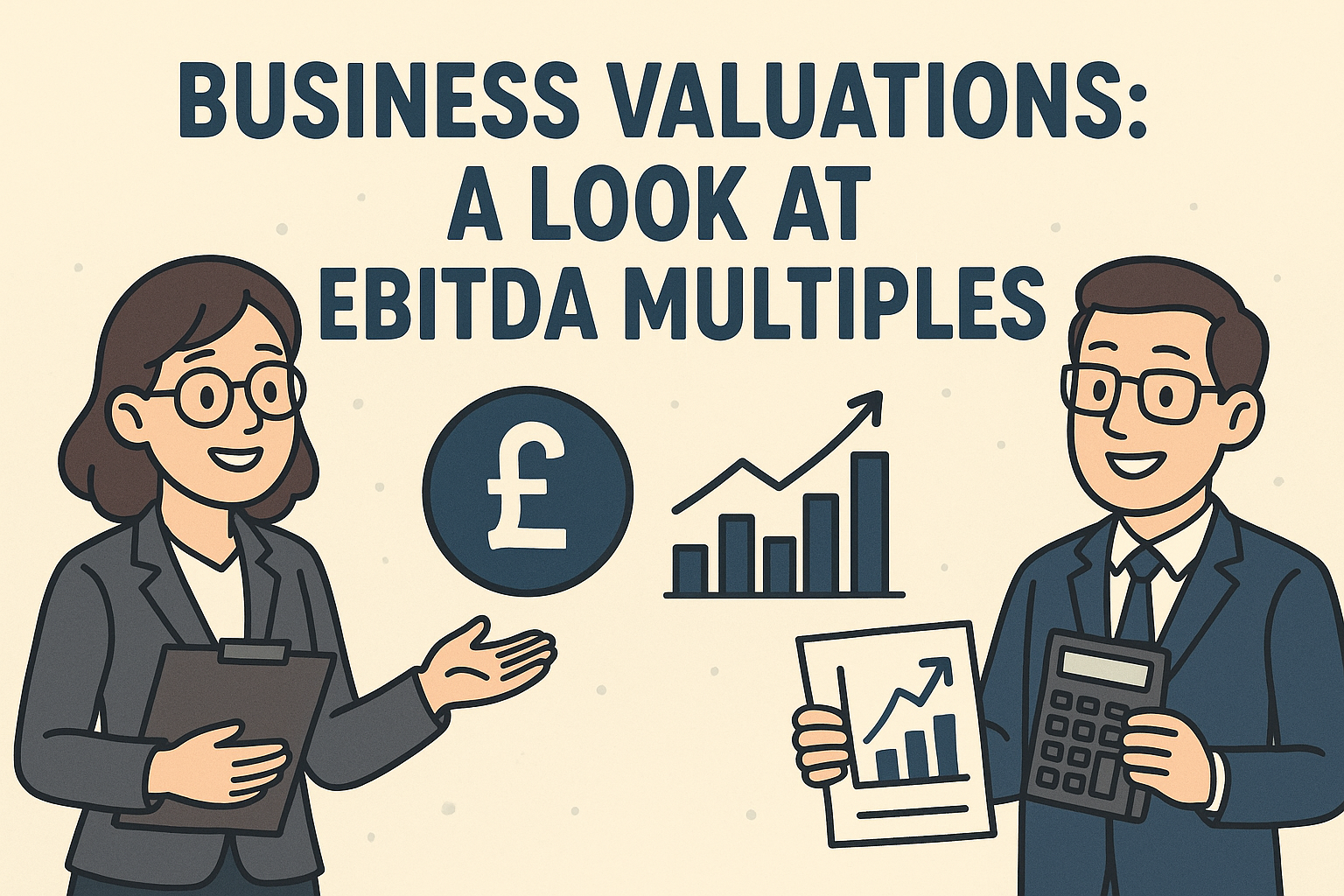
Business Valuations: A Look at EBITDA Multiples
- Business Valuation
- Quick Read

Business Valuations: A Look at EBITDA Multiples
- Recent Thinking
- Mike Smith
- Last updated
Business Valuations: A Look at EBITDA Multiples
When it comes to buying, selling, or planning the future of a business, one of the first questions is usually: “What is the business worth?”
The truth is, valuing a business isn’t an exact science. There’s no single formula that can be applied universally. Instead, business valuation is part analysis, part judgement, and often influenced by market sentiment.
That said, there are common methods used to guide the process — and one of the most popular for trading businesses is the EBITDA multiple approach.
What is EBITDA?
EBITDA stands for Earnings Before Interest, Tax, Depreciation and Amortisation. It’s a measure often used to show a business’s underlying profitability, stripping out costs that may vary depending on ownership, financing, or accounting policies. In short, it’s designed to show the “true” operating performance of the company.
The EBITDA Multiple Method
The idea behind this approach is straightforward:
- Calculate the EBITDA of the business.
- Apply a multiple (for example, 4x, 6x, 8x) that reflects what similar businesses are selling for in the market.
- Multiply them together to arrive at an estimated valuation.
For instance, if a company has an EBITDA of £500,000 and businesses in the same sector are typically valued at 6x EBITDA, then the estimated value might be around £3 million.
But It’s Not a Science
While EBITDA multiples are useful, they are not the whole story:
– Different industries attract very different multiples.
– Market conditions, such as buyer appetite and economic outlook, can shift values significantly.
– Factors such as customer concentration, growth potential, intellectual property, and management strength all play an important role.
– Even two businesses with the same EBITDA might command very different valuations depending on their risk profile.
This is why valuations are better seen as a range of value, rather than one fixed number.
Enterprise Value vs Equity Value
Another important distinction when discussing business valuations is the difference between Enterprise Value (EV) and Equity Value.
Enterprise Value (EV): This reflects the total value of the business as a whole, including debt. It represents the value to all stakeholders (both debt and equity holders).
Equity Value: This is the value left for shareholders after debts and liabilities are taken into account. Put simply, it’s the amount an owner could walk away with if the business were sold and debts repaid.
For example, a business might have an EV of £5 million, but if it carries £2 million of debt, the equity value (what the shareholders would actually receive) would be closer to £3 million.
The Bottom Line
If you’re considering selling, buying, or simply planning for the future, it’s worth remembering that business valuation is as much an art as it is a calculation. EBITDA multiples provide a starting point, but a proper valuation considers the wider picture.
Credits and thanks: ACCA Factsheets and training course
How can we help?
At CORNEL Accountants we offer our clients an all-inclusive and fixed fee basis for any work we do, always agreed up-front. Why not get in touch for an initial discovery call and explore how we can help you?
Disclaimer:
The content included in this blog post is based on our understanding of tax and company law at the time of publication. It may be subject to change without notice and may not be applicable to your circumstances, so should not be relied upon. You are responsible for complying with tax law and should seek independent advice if you require further information about the content included in this post or guide.


